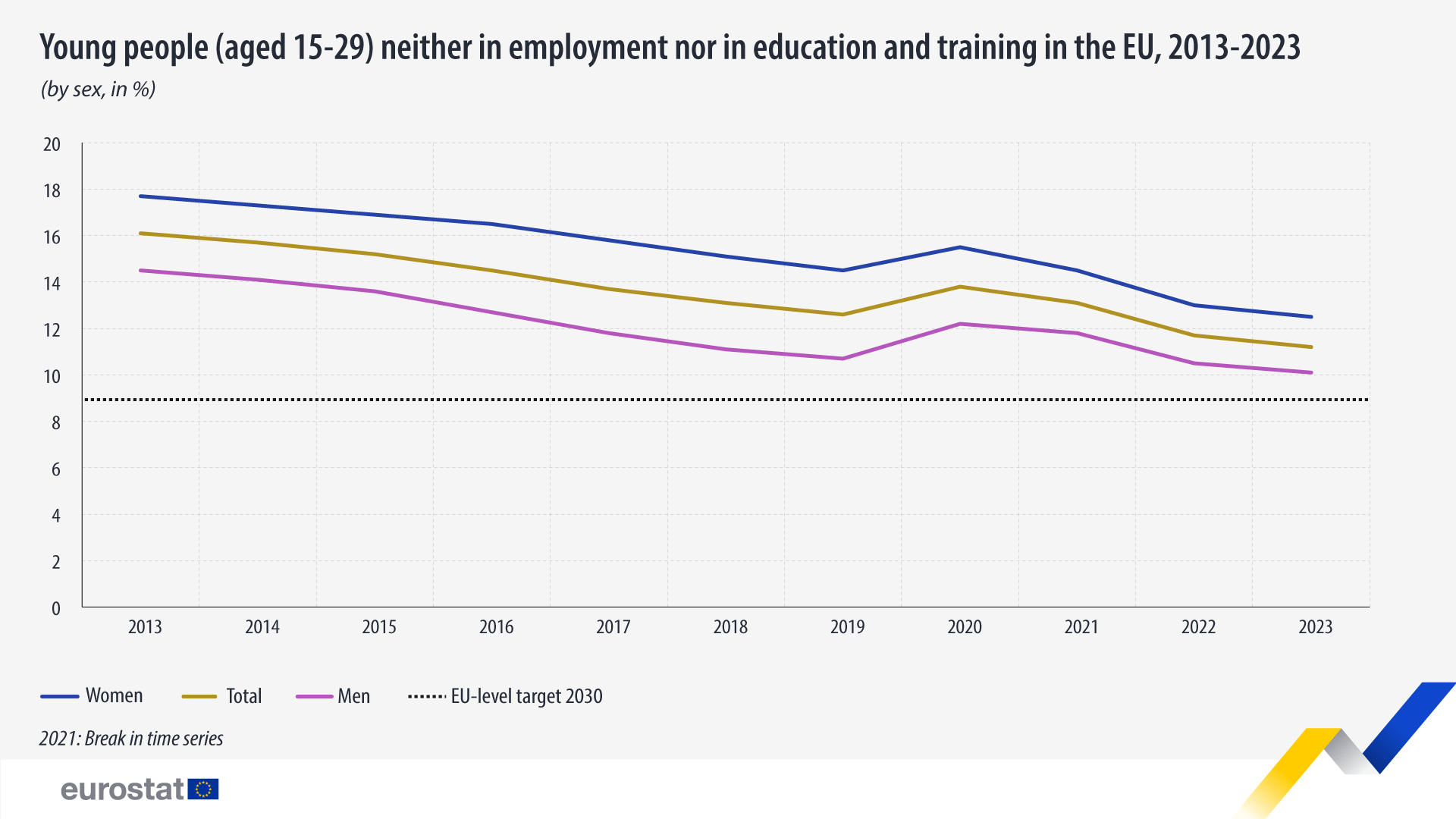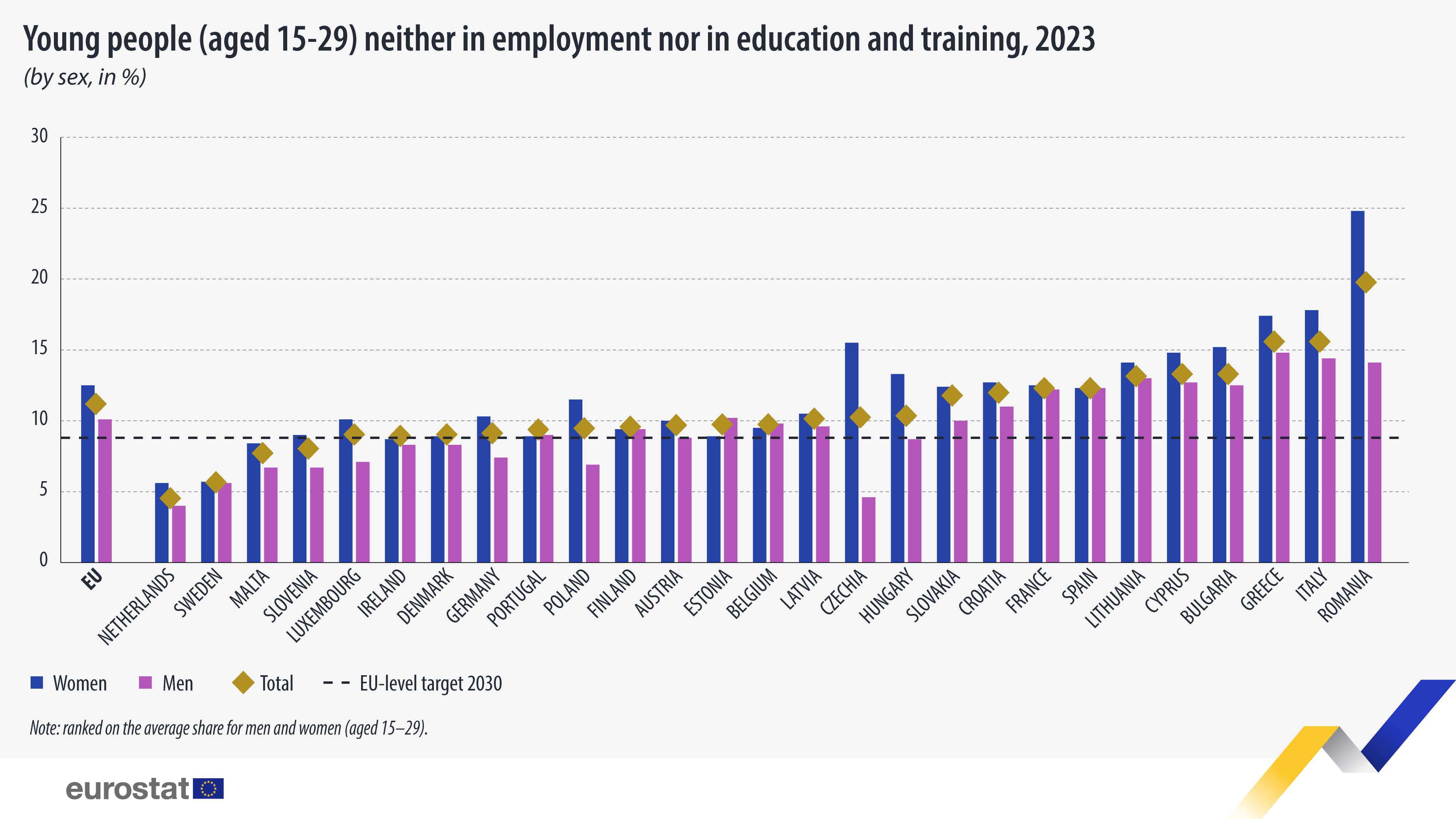In 2023, more than one in ten (11.2%) young people aged 15 to 29 in the EU were neither in employment nor in education or training (NEET), a decrease of 0.5 percentage points (pp) compared with 2022.
Over the last ten years, there was a noticeable decrease in the NEET rate among people aged 15 to 29. In 2013, the EU rate stood at 16.1% and it has decreased steadily since then, with the only exception being the COVID-affected 2020 when an increase was reported (from 12.6% in 2019 to 13.8% in 2020, followed by 13.1% in 2021).
In 2023, NEET rates among young adults varied considerably across EU countries, ranging from 4.8% in the Netherlands to 19.3% in Romania.
Reducing this rate is one of the targets of the European Pillar of Social Rights. The goal is to lower the NEET rate of young people aged 15-29 to 9% by 2030.
Data show that, in 2023, a third of the EU countries were already below the 2030 target of 9%, namely the Netherlands (4.8%), Sweden (5.7%), Malta (7.5%), Slovenia (7.8%), Luxembourg (8.5%), Ireland (8.5%), Denmark (8.6%), Germany (8.8%) and Portugal (8.9%).
In most EU countries, there were differences between the shares of NEET young women and young men. In 2023, 12.5% of young women aged 15–29 in the EU were NEET, while the corresponding share among young men was 10.1%.
The lowest NEET rates for young men and women were both in the Netherlands: 4.0% for young men and 5.6% for young women.
In contrast, the highest NEET rate for young men was recorded in Greece (14.8%), and the highest for women in Romania (24.8%).
The shares of NEET young women were lower than the associated share of men in Estonia (8.9% vs 10.2%) and Belgium (9.5% vs 9.8%), while Portugal, Spain, Finland and Sweden recorded roughly the same shares of NEET men and women.
More information: Eurostat









Leave a Reply